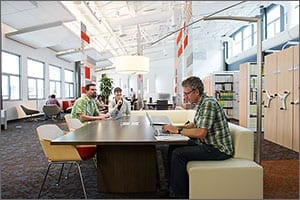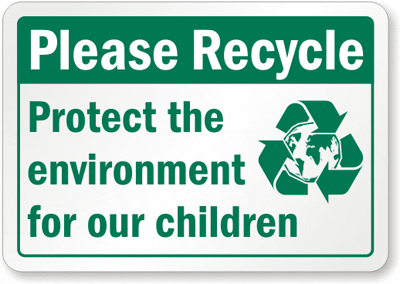
The United States can double its energy productivity by 2030
Researchers at the U.S. Department of Energy’s (DOE) National Renewable Energy Laboratory (NREL) have long understood that using energy more efficiently can be just as beneficial as finding new ways to produce energy more efficiently.
On Feb. 7, NREL Director Dan Arvizu and a blue-ribbon panel of 20 energy experts drove that message home, declaring that the United States can double its energy productivity by 2030 — and do so in ways that bolster the nation’s economy.
Unveiling their recommendations at the National Press Club in Washington, D.C., Arvizu and other members of the Alliance to Save Energy (ASE) Commission on National Energy Efficiency Policy said that doubling energy productivity could create a million new jobs, while saving the average household $1,000 a year and reducing carbon-dioxide emissions by one-third.
“Serving on the Commission on National Energy Efficiency Policy over the past year has been a unique and rewarding experience,” Arvizu said. “The commission’s recommendations provide a bold yet attainable roadmap for revolutionizing our nation’s use of energy, and boosting our economy and improving our environment along the way.” The commission was organized and sponsored by the ASE, and the full report is available on the ASE website.
The commission said its ambitious goals can be accomplished by unleashing investments in energy efficiency concepts and technologies throughout the economy, modernizing our energy infrastructure, reforming regulatory measures to promote efficiency, and educating consumers and business leaders on ways to reduce energy waste.
In December, Arvizu testified on the importance of greater energy efficiency before the U.S. Senate Finance Subcommittee on Energy, Natural Resources, and Infrastructure. You can read that testimony here![]() .
.
“Perhaps the most compelling evidence that energy efficiency measures can have dramatic effects in the future is the often-overlooked fact that they already have produced so many benefits for our nation,” Arvizu noted in his testimony. To the same point, a report by the commission showed that the nation would be using fully 50% more energy than we currently use today had we not taken advantage of all the energy efficiency opportunities we have developed and deployed over the past three decades.
The NREL director’s work on the commission and his testimony before Congress are but two illustrations of how NREL has been a leader in cutting-edge energy efficiency solutions.
A wealth of NREL experience and research knowledge was included in Arvizu’s contribution to the commission’s report. Dick DeBlasio, NREL’s chief engineer for renewable electricity ande use applications, Austin Brown, a Washington, D.C., analyst in NREL’s Strategic Energy Analysis Center, and Gary Schmitz, NREL senior manager for government relations, worked closely with Arvizu and ASE staff to ensure the recommendations reflected the latest in energy efficiency analysis and R&D concepts from NREL programs.
In addition to NREL’s R&D on renewable energy generation technologies such as solar and wind, the laboratory has major programs to improve energy efficiency in the nation’s two largest sectors of energy use: buildings and transportation.
More Efficient Buildings
The Latest Bing News on:
Energy productivity
- Engineers create energy-smart, sustainable bricks from wasteon May 1, 2024 at 6:51 am
For manufacturers, that means saving up to 20 percent on firing temperatures by replacing clay with waste materials in brick production.
- Shapiro energy plan keeps Pa. interests front and centeron May 1, 2024 at 5:58 am
Altogether, Mr. Shapiro should be applauded for bringing a wide variety of stakeholders to the table and for generating a plan specific to Pennsylvania’s regionally unique status as an energy exporter ...
- Anfield Energy Files Plan Of Operation For Uranium Mining In Utahon May 1, 2024 at 5:18 am
The Velvet-Wood project, the most advance mine asset within Anfield’s portfolio, is historically estimated to contain 4.6 million pounds of U3O8 within the measured and indicated categories at 0.285% ...
- Diamondback Energy, Top Permian Basin Producer, Reports 16% Revenue Growth Amid 30% Runon May 1, 2024 at 4:59 am
Diamondback Energy reported better-than-expected first-quarter earnings and revenue late Tuesday. FANG shares angled lower after the market closed.
- Canada's Cenovus Energy beats profit estimate on production booston May 1, 2024 at 4:01 am
Canadian oil and gas company Cenovus Energy beat first-quarter profit estimates on Wednesday, buoyed by higher production and throughput volumes at its refineries. Quarterly refining throughput in the ...
- Cenovus Energy 1Q Earnings Jump With Higher Quarterly Productionon May 1, 2024 at 3:50 am
Cenovus Energy logged a jump in first-quarter earnings on the back of a higher operating margin and a gain on the sale of assets, and with an increase in production. The Canadian oil and natural gas ...
- Data reveals big milestones for California's wind, water and solar power productionon May 1, 2024 at 1:40 am
Renewable energy sources have been consistently meeting the state grid's power demands for the past couple of months.
- Buy Rating Affirmed for Trillion Energy International Amidst Production Improvement Prospects and Strong Revenue Streamson April 30, 2024 at 11:35 am
Adam Gill, an analyst from Echelon Wealth Partners, maintained the Buy rating on Trillion Energy International (TRLEF – Research Report).
- Energy Use Is Simple Mathon April 30, 2024 at 8:56 am
If the system breaks, the power goes out.
- The next big energy fight: Defense Production Act renewalon April 30, 2024 at 3:18 am
Republicans have little good to say about President Joe Biden using the national security law for renewable energy projects.
The Latest Google Headlines on:
Energy productivity
[google_news title=”” keyword=”energy productivity” num_posts=”10″ blurb_length=”0″ show_thumb=”left”] [/vc_column_text]The Latest Bing News on:
Energy efficiency
- 2024’s Top Energy-Efficient Window Choices for Miami Homeson May 1, 2024 at 7:30 am
Energy Efficiency: With a U-factor of 0.27, they excel in thermal insulation, keeping cool air in and hot air out, which is crucial in Miami’s tropical climate. Customer Feedback: "The reduction in my ...
- New Orleans is the ‘most improved’ city for clean energy, new report sayson May 1, 2024 at 7:00 am
New Orleans ranked 39 on the American Council for an Energy Efficient Economy’s recent scorecard, passing dozens of other cities.
- Engineers create energy-smart, sustainable bricks from wasteon May 1, 2024 at 6:51 am
For manufacturers, that means saving up to 20 percent on firing temperatures by replacing clay with waste materials in brick production.
- The "iPhone of Air Conditioning" is $100 Off This Weekon April 30, 2024 at 6:37 pm
Windmill Air is a smart, portable AC unit that sets the standard for energy efficiency. Learn more about how to save $100 through 5/5/2024.
- Lansing earns low score for energy-efficient economyon April 30, 2024 at 2:55 pm
A new scorecard from the American Council for an Energy-Efficient Economy was released Tuesday and for the first time it included Lansing in the data.
- San Diego, Chula Vista have room to improve on energy efficiency, report sayson April 30, 2024 at 10:58 am
San Diego and Chula Vista received decent marks on a report released on Tuesday detailing efforts by cities across the U.S. to advance clean energy and reduce greenhouse gas emissions.
- Best HVAC Systems 2024: Energy Efficiency and Cost Savingson April 30, 2024 at 8:16 am
Cost Efficiency: Advanced HVAC systems are more energy-efficient, which significantly lowers electricity bills. Automated adjustments and smart thermostats avoid unnecessary energy use, making these ...
- Aurora report: autonomous vehicles could improve energy efficiency in trucking industryon April 30, 2024 at 6:26 am
A new report published by Aurora found that autonomous trucking has the potential to improve energy efficiency between 13% and 32% per loaded mile.
- Cleveland among bottom half of large cities for energy efficiency, new report sayson April 30, 2024 at 3:01 am
The report finds that Cleveland has the most room to grow in the building policies category, one of the two heaviest-counted categories. However, it notes that the city offers a few incentives and ...
- As winter approaches, Mr Blinds share how the right window treatments can help keep homes warm and energy-efficienton April 29, 2024 at 10:53 pm
As homeowners prepare for the colder months ahead, Mr Blinds, one of New Zealand’s most trusted manufacturers of custom blinds and curtains, is ...
The Latest Google Headlines on:
Energy efficiency
[google_news title=”” keyword=”energy efficiency” num_posts=”10″ blurb_length=”0″ show_thumb=”left”]









